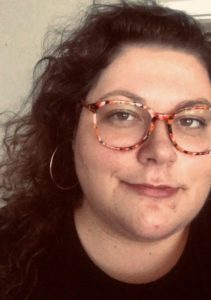I’ve given this spiel hundreds of times. Sometimes I get it in before a client starts to tell me what has been on their mind. In other cases, it’s a crisis, and there is no time for standard operating procedure. Either way, the stories that follow my speech are always with me.
I don’t remember the specifics of every call that I have taken as a domestic violence advocate, but I do remember almost every client. The panic in their voice, their accents, the background noises, how fast or slow they’re talking, if they were speaking through tears or with quiet whispers, I remember them. My training was a rigorous 42 hours of education that I somehow managed to squeeze in during my junior year of undergrad. During these trainings, equipped with snacks of clementines and tortilla chips, we’d learn how to interact directly with victims of domestic violence. We learned everything, from how to handle filing a domestic violence protective order to how to take care of a panicking victim of domestic violence. We were training to be the first point of contact in crisis: a calm reassurance that someone believed them and was behind them amid a torment of abuses.
These trainings were rough and at times, draining. We’d speak with police officers about what they could or couldn’t do. Learning to navigate the immigration system for victims of domestic violence who do not have papers to be in this country proved to be a tricky task for most community members, walking a very fine line between domestic abuse and deportation.
We were taught the homophobic laws of domestic violence protection orders between same sex couples; if they hadn’t cohabited, they were only eligible for a 50C (a restraining order without criminal implications). We learned what to do about a suicidal person and the protocol for reporting suspected child abuse. We learned what resources would be available to folks, either through our domestic violence agency or surrounding community partners.
We were taught how to be discreet in notes and only document relevant information, using the vaguest language possible, in the event that our notes were subpoenaed. The training coordinators made sure we had plenty of mock scenarios to practice what we’d say and what advice we’d give to the calls we’d receive, but nothing really compares to having a whole human being on the other line, begging for help.
The calls I’ve answered during my time as a hotline advocate range significantly. Sometimes, clients just need someone to listen to them and reaffirm that they are valuable and worthy and deserving of healthy and happy relationships. Sometimes, clients are homeless because they made that courageous step to flee an abuser, and we work to find them shelters and housing. Sometimes, it’s the middle of the night when they finally take that step, and they call us, having no idea what else to do. It is times like these where I’d find myself, 1 in the morning, arranging a taxi after having spent all afternoon on the phone with various shelters coordinating intake. The fear in their voice is palpable, thick with desperation. I remember them.
Some clients I hear from once, and then never again. Other clients are perpetually on my radar. Some I have met in person, and the others I know only by their voices. These humans are the strongest I’ve ever met. To fight to flee an abuser, after years of physical, emotional, and financial abuse, is an incredible feat. To help guide someone in their journey of creating the life they so sorely deserve is truly a privilege. At times, the absence of resources, the lack of clarity about situations and the frustrations are exasperating. Nevertheless, all the time, I am proud to be their advocate.
Emma Halker is a senior studying biology and Spanish at the University of North Carolina at Chapel Hill. When she’s not doing research or working on her Spanish language proficiency, she’s volunteering with the Compass Center for Women and Families in Orange County.



There are no comments
Add yours